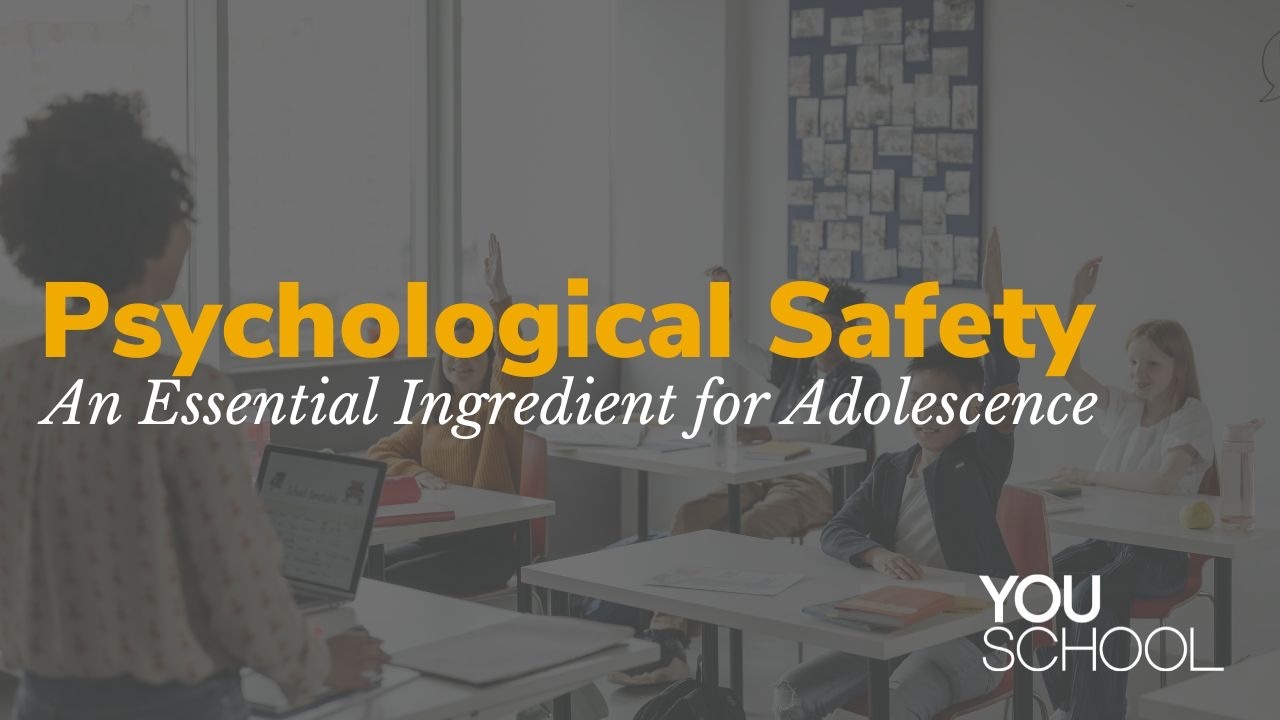Psychological Safety - An Essential Ingredient to Adolescence

Everyone knows what it feels like to be emotionally or psychologically unsafe. Whether behind your back or right in front of you, if you feel the threat of judgment, picking picked on, ridiculed, or humiliated—it’s an awful experience.
You'll brace yourself for harm if you’re around someone or a group of people who tend to be critical. Being vigilant to constant threats is stressful and causes most people, especially if you’re newer to a team, to make poor choices, which will be detrimental to your mental health, and certainly be harmful to your school or family. It sucks to be in an environment like that.
That’s why most people avoid speaking up, asking obvious questions, or making new suggestions. Nobody wants to feel ignorant, incompetent, or intrusive. We’ll try to avoid it all at almost any cost.
On the other hand, feeling socially isolated can be just as awful an experience. It’s the primary means of torture for a reason. Researchers have found that social isolation at a young age strongly correlates with addiction later in life.
What’s the alternative? That’s where we’d like to introduce the term: Psychological Safety. Originally coined and popularized by Professor and Researcher Amy Edmondson from Harvard, psychological safety has three ingredients:
- It’s okay to be myself
- It’s okay to make mistakes
- People here have my back
When kids feel those ingredients, they’ll show up more genuinely and authentically and make choices consistent with their and the family's values.
In other words, they’ll feel safe, accepted, and free to be themselves. If a kid can experience psychological safety like that, especially with their peers and teachers, they’ll be able to engage more with creativity and courage.
Everybody wins with psychological safety. It makes it easier to go to school, take risks and be more innovative.
Now, the questions are: how do you create psychological safety? What can you do to change your vibe if you don’t have it already? Is it just an abstract concept, or can you take tangible steps to grow in it?
We’ll tackle those questions and give you a roadmap to increase it, whether you’re an educator or a parent in future posts.
P.S. If you’re a nerd, rest assured that psychological safety has been deeply researched. If you don’t trust ‘the science,’ don’t worry- we’ll give you practical steps you can take to test it yourself. Lastly, if you hate kids but value efficiency and effectiveness, we’ll convince you that cultivating more psychological safety will help you accomplish more and get what you want.
